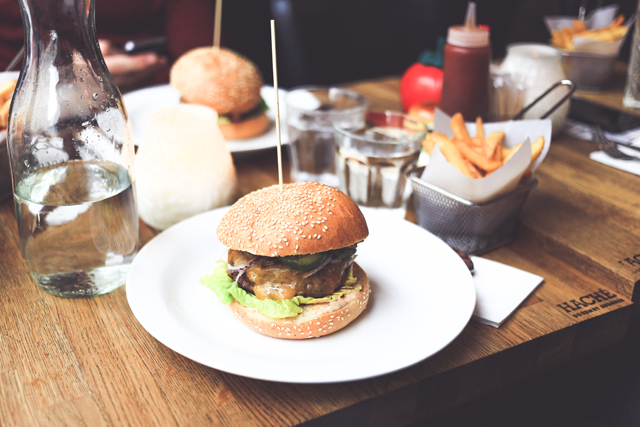Most people know that a healthy diet is important in managing weight and aging well. But what many people don’t realize is that the foods we eat can significantly alter our mood.
While eating foods rich in protein, antioxidants and omega-3 fatty acids can help fight depression and other mood disorders, eating the wrong kinds of food can cause depression and anxiety and even worsen symptoms.
If you have panic attacks or suffer from a mood disorder, it’s important that you can identify which foods may trigger or exacerbate symptoms. As a general rule, the following 5 foods should be avoided if you suffer from anxiety.
1. Coffee
Have you ever had one too many cups of coffee and a little while later had the jitters? Coffee can worsen existing anxiety and even cause it in people who don’t normally suffer from it. Caffeine increases cortisol levels (one of our “fight or flight” hormones), which in turn makes you feel stressed even when there is no external stressor.
According to research, lower intakes of coffee (less than 6 cups per day) has been linked to less depressive symptoms.
2. Alcohol
It has been said that one or two glasses a day of alcohol such as wine is good for your heart. While this may be true for those that don’t suffer from anxiety, those that do should steer clear of alcohol. The National Institute on Alcohol Abuse and Alcoholism has stated that alcohol may worsen mood and contribute to anxiety.
3. Sugar
Often people reach for sugary foods like cookies and candy when dealing with a mood disorder. While it may seem these sweat treats are soothing in the moment, sugar actually makes your negative feelings worse. A diet high in sugar causes spikes and drops in blood sugar levels, which can wreak havoc on your moods and cause you to have panic attacks. Though delicious, avoid sugary foods as much as possible.
4. Trans Fat
It turns out trans fats found in foods like French fries and packaged snacks are not only bad for your health but for your mood as well. In fact, studies have found that foods containing trans fats, also called hydrogenated fats, can increase your risk of depression.
A study, published in the International Journal of Food Sciences and Nutrition, examined the brains of rats and found that prolonged consumption of trans fat led to more anxiety-like symptoms.
5. Gluten
You don’t have to have Celiac’s Disease to be bothered by gluten. Many people don’t realize they have an intolerance to gluten that often shows up in the form of anxiety and panic attacks. A study published in the U.S. National Library of Medicine found that those with gluten sensitivities are more prone to feeling anxious after eating wheat.
While cleaning up your diet can help you deal with your anxiety, sometimes diet alone is not enough. Therapy can help you to identify the root cause of your anxiety and cope with it.
If you or a loved one is interested in exploring counseling, please contact us today. We would be happy to speak with you about how we may be able to help.

4 Ways to Reduce Anxiety on Your Coffee Break
According to the Anxiety and Depression Association of America, anxiety disorders affect roughly 40 million people over the age of 18 in the United States. Though these disorders are highly treatable, only 36.9% of those with anxiety seek treatment. Perhaps this is...
5 Ways to Get a Better Night’s Sleep with Anxiety
Affecting nearly 40 million adults in the United States, anxiety is one of the country’s most common mental health disorders. Sleep disturbances such as insomnia are highly prevalent amongst those who suffer from an anxiety disorder. If you have trouble falling...
How to Help Your Young Child Get Ready for the School Year After Summer Break
It’s that time of year again when big yellow buses can be seen driving around the neighborhood and school bells begin ringing. Going back to school can definitely be an exciting time for parents and children.But for some kids, especially younger ones, going back to...
Quick! Get Your "Top Tips For Getting the Most Out of Counseling" Cheatsheet!
Like some of what you've seen and want to see more? Sign up for our Mailing List for a free cheat sheet on making the most out of counseling. Our list members also gain access to exclusive specials and announcements, as well as the latest from our Counseling Blog!




